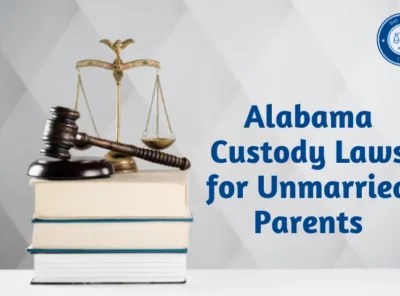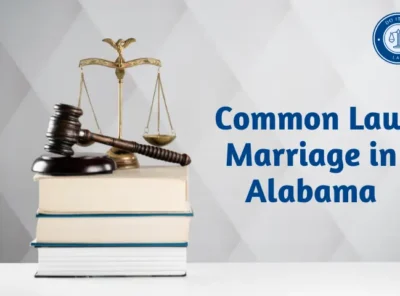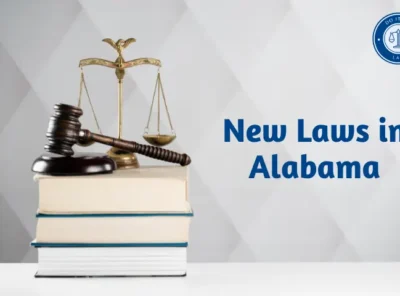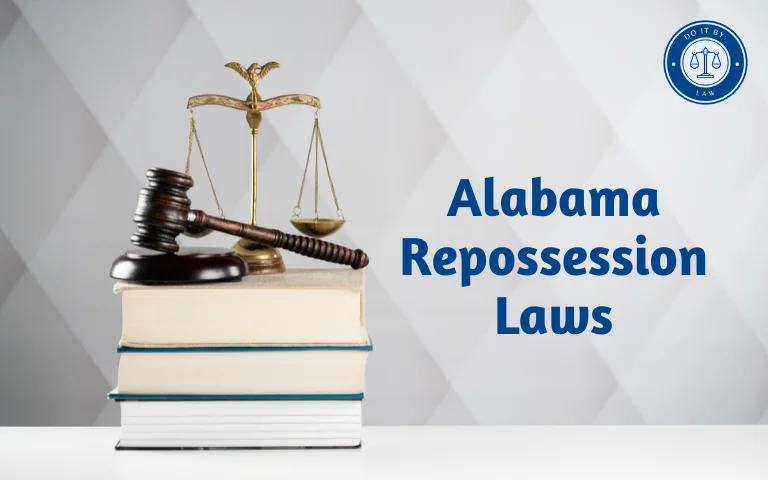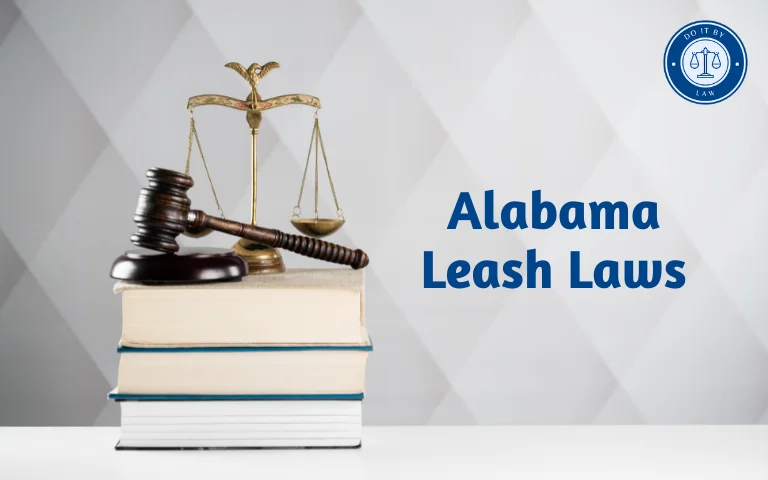Alabama Divorce Laws: What You Need to Know
Getting divorced in Alabama can be a complicated process. This article provides an overview of Alabama divorce laws, including when they were enacted, who they apply to, key provisions, penalties, recent changes, controversies, and more. Continue reading to learn what you need to know about getting divorced in Alabama.
When Were Alabama Divorce Laws Enacted?
Alabama divorce laws have evolved. Prior to 1973, Alabama had stringent divorce laws and was one of the last states to allow “no-fault” divorce on the grounds of incompatibility. The current divorce laws in Alabama were enacted in 1971 and amended in 1979, 1983, 1984, 1985, 1995, 1996, 1998, and 2005. Alabama technically has a “no-fault” divorce, but it also allows for “fault-based” divorce on grounds like adultery, abandonment, addiction, or abuse.
Who Do Alabama Divorce Laws Apply To?
Alabama’s divorce laws apply to any married couple who files for divorce within the state of Alabama. To file for divorce in Alabama, either the petitioner or respondent must have been a resident of Alabama for at least 6 months prior. Alabama divorce laws govern issues like asset division, alimony, child custody and support, and more. The laws apply whether it is an uncontested divorce or a contentious divorce with disputes over these matters.
Key Provisions of Alabama Divorce Laws
Here are some of the key provisions and requirements in Alabama divorce laws:
- Grounds for Divorce – Incompatibility, adultery, abandonment, addiction, abuse, or conviction of a felony. Alabama recognizes “no-fault” divorce but also allows “fault-based” divorce.
- Property Division – Alabama is an “equitable distribution” state. Marital property is divided fairly but not necessarily equally.
- Alimony – Allowed at the court’s discretion based on one spouse’s need and the other’s ability to pay. Many factors are considered.
- Child Custody – Decided based on the “best interests of the child.” Joint custody is an option.
- Child Support – Based on Alabama Child Support Guidelines taking into account the incomes of both parents.
- Waiting Period – 60 days from filing before the divorce can be finalized. Can be waived in certain circumstances.
- Separation Period – Spouses must live separately for at least 30 days before filing for divorce in Alabama.
Penalties for Violating Alabama Divorce Laws
There can be penalties for violating Alabama divorce laws, such as:
- Failure to disclose assets or hiding marital property during divorce – Property award penalties, financial sanctions
- False reporting of income or support obligations – Contempt of court, wage garnishment, liens
- Denying court-ordered visitation – Make-up visitation, change in custody
- Failure to pay child support – Wage garnishment, tax refund seizure, suspension of licenses
- Failure to follow court orders – Contempt charges, fines, jail time
Judges have wide discretion to enforce compliance with Alabama divorce laws.
Recent Changes and Proposed Changes
Some recent and proposed changes to Alabama divorce laws include:
- In 2018, the law was updated to allow judges to award attorney fees in divorce cases.
- In 2017, a “presumption of shared custody” bill was proposed but not passed. If passed, it would mean joint custody would be presumed best for the child in most cases.
- In 2015, a new law provided for expedited temporary support during the pendency of a divorce.
- Changes have been proposed regarding waiting periods, property division, and alimony guidelines, but not enacted.
- No-fault divorce was first introduced in 1971 and was controversial at the time.
Controversies and Debates
There are some ongoing controversies and debates related to Alabama’s divorce laws:
- How “friendly parent” provisions affect child custody for primary caregivers vs equal shared custody.
- Whether or not alimony guidelines should be implemented like child support guidelines.
- Disagreements over equitable vs equal division of marital property.
- Whether adultery should continue to be a consideration or if Alabama should be a “true no-fault” divorce state.
- If the required separation period before filing for divorce should be shortened or eliminated.
- If covenant marriages should be recognized and make divorce more difficult.
How to File For Divorce in Alabama (Step-by-Step Process)
Getting divorced in Alabama laws involves following certain legal procedures and requirements. Here is a step-by-step overview of how to file for divorce in Alabama:
Step 1 – Meet Residency and Separation Requirements
To file for divorce in Alabama, one spouse must have lived in the state for at least 6 consecutive months. Additionally, spouses must be separated and living apart for at least 30 days before initiating divorce proceedings.
Step 2 – Decide on Divorce Grounds
Alabama allows both no-fault divorce on the grounds of incompatibility and fault-based divorce on grounds like adultery, abandonment, or abuse. You’ll need to decide which grounds to file under. Discuss with your divorce attorney.
Step 3 – Complete and File Divorce Paperwork
You or your attorney will need to draft and file a Complaint for Divorce with the circuit court in the county you reside in. This initiates the divorce and sets out agreements you’ve reached.
Step 4 – Serve Divorce Papers on Your Spouse
A copy of the filed divorce complaint must be properly served on (delivered to) your spouse per Alabama rules. This is usually done by certified mail or a process server.
Step 5 – Attend Hearings and Mediation if Required
For contested divorces, hearings and mediation sessions may be scheduled to resolve disagreements over property, support, custody, or other issues.
Step 6 – Disclose Financial Information
Full financial disclosure and a parenting plan will need to be provided during the process. Refusal to disclose assets or income can result in penalties.
Step 7 – Finalize the Divorce Decree
After the 60-day mandatory waiting period, the judge will issue a final divorce decree outlining all binding terms like asset division, alimony, and child custody.
Step 8 – Change Your Legal Name (Optional)
If desired, either spouse can regain a prior legal name through the court as part of the divorce decree or via a separate petition later.
Filing for divorce in Alabama involves meeting residency requirements, deciding on grounds for divorce, filing and serving papers, disclosing finances, and obtaining the final decree. Consulting an experienced Alabama divorce attorney is highly recommended to ensure proper procedures are followed.
How to File For Divorce in Alabama Without a Lawyer
Although it’s advisable to have legal representation, it is possible to get divorced in Alabama without hiring a divorce attorney if your divorce is relatively simple. Here are some tips on navigating an Alabama DIY divorce:
- Educate Yourself on the Divorce Laws and Process:- Learn about Alabama’s divorce laws for property division, child custody, alimony, and the required procedures. Local court clerks may provide some guidance.
- Consider Mediation First:- You may be able to reach agreements regarding the separation of assets, support, and custody through mediation before filing.
- Get the Right Alabama Divorce Forms:- Your local court clerk or legal self-help sites can provide the uncontested divorce forms you need to start the process and finalize agreements.
- File Paperwork Correctly:- Closely follow all instructions when completing your Alabama divorce papers. Missing information can delay the process. Have someone review them.
- Serve the Papers Properly:- You can’t serve divorce papers on your spouse yourself. Follow legal procedures for delivery via certified mail, the sheriff, or a private process server.
- Don’t Miss Hearings:- If hearings are scheduled, make sure to attend or request alternates if necessary. Missing hearings can negatively impact your case.
- Consider Using a Legal Document Preparer:- While not attorneys, these services can help properly prepare and file divorce paperwork at a lower cost. Check qualifications.
- Get Guidance on Areas of Concern:- Consult an Alabama divorce lawyer on an unbundled basis if you get stuck on certain issues like child support calculations.
- Do-it-yourself divorce is complex but possible for amicable splits. Seek legal advice before filing significant court papers or if disputes arise.
How to File For Divorce in Alabama With Children (Custody Process)
When minor children are involved, an Alabama divorce involves additional steps to determine custody arrangements. Here is an overview of how child custody is handled in Alabama divorces:
- Include Custody Requests in Initial Filing:- Outline your desired custody plan in your initial divorce complaint filing. Request sole or joint legal and physical custody based on caregiving roles.
- Attend Mediation:- The court will likely order mediation first to establish agreed custody terms and a parenting plan covering visitation schedules, holidays, etc.
- Provide Evidence if Contested:- If you cannot agree, provide evidence through witnesses, evaluations, and documentation that your requested arrangement is in the child’s best interests.
- Participate in the Guardian Ad Litem Process:- The court may appoint a guardian ad litem to investigate and make custody recommendations. Cooperate fully with interviews and home visits.
- Attend Hearings:- The court will likely order mediation first to establish agreed custody terms and a parenting plan covering visitation schedules, holidays, etc.
- Provide Evidence if Contested:- If you cannot agree, provide evidence through witnesses, evaluations, and documentation that your requested arrangement is in the child’s best interests.
- Participate in the Guardian Ad Litem Process:- The court may appoint a guardian ad litem to investigate and make custody recommendations. Cooperate fully with interviews and home visits.
- Attend Hearings:- The court will likely order mediation first to establish agreed custody terms and a parenting plan covering visitation schedules, holidays, etc.
- Comply with Court Orders:- The judge will issue custody orders. Strictly follow court-ordered terms for custody, visitation exchanges, child support payments, and more.
- Seek Modifications if Needed Later:-
If circumstances change substantially, you can file to modify custody later via mediation and hearings again.
Establishing custody during an Alabama divorce involves mediation, hearings, guardians ad litem, and orders focused on the child’s best interests. Having a skilled divorce and custody attorney as your advocate provides valuable guidance.
How to File For Divorce in Alabama With No Minor Children
- If you are getting divorced in Alabama and have no dependent children together, the process is simplified without custody considerations. Here is how an Alabama divorce with no minor children typically proceeds:
- Meet Residency and Separation Requirements:- As in any Alabama divorce, you must be resident for 6 months and separated for at least 30 days before filing.
- File Divorce Papers and Serve Spouse:- Complete complaint forms stating grounds and agreements such as property division. Serve papers properly.
- Disclose Finances and Agree on Division:- Detail finances, assets, and incomes. Determine fair property split through mediation or court if needed.
- Establish Alimony if Applicable:- Agree on alimony amount and duration based on respective financial positions. Judges decide if contested.
- Attend Hearings if Needed:- For contested cases, a hearing may be held to resolve financial disputes. Most are settled before needing court intervention.
- Finalize the Divorce Decree:- After 60 days, the judge will finalize the divorce decree including property award and alimony provisions.
- Change Your Name if Desired:-
Restore a prior name via the divorce decree or file a separate name change petition later.
The process is simpler without contested child custody issues. However, income disclosure and property division remain key parts of the divorce requiring agreement or court decisions.
How to File For Divorce in Alabama With Adultery
Alabama allows fault-based divorce on grounds like adultery. Here’s how to file for divorce citing adultery in Alabama:
- Compile Evidence of Adultery:- Gather proof like photos, texts, and testimony of cheating for your divorce complaint. Circumstantial evidence may also be considered.
- Include Adultery Allegations in Filing:- State adultery as the grounds for divorce in your initial papers. Your spouse may admit or deny.
- Have Spouse Served:- Legally serve divorce papers to your spouse through certified mail, sheriff, or process server.
- Prove Adultery if Contested:- If your spouse denies adultery, submit your evidence. Courts have high standards for proof of extramarital relations.
- Attend Hearings if Needed:- Judges may hold hearings to evaluate the validity of adultery claims and their impact on issues like alimony or property division.
- Get Final Divorce Order:- Wait the mandatory 60 days, then the court will issue the final decree granting divorce on grounds of adultery if adequately proven.
- Seek Support for Affected Children:-
Adultery can negatively impact kids. Seek counseling and limit harmful exposure during the divorce process.
Proving adultery allegations in an Alabama divorce often requires explicit evidence and testimony meeting high legal standards. Experienced local divorce attorneys can best advise how to navigate filing on these grounds.
How to File For Divorce in Alabama With Abuse
Alabama allows divorce on the grounds of physical abuse or domestic violence. Steps include:
- Document the Abuse:- Compile medical records, police reports, photos, witness statements, and other evidence of physical harm.
- Get Protective Orders:- File for restraining orders and emergency custody relief to get distance and reduce risks during the divorce.
- State Abuse in Divorce Filing:- Cite domestic violence as the grounds for divorce. Seek sole custody and restrictions in parenting plans.
- Provide Copies of Evidence:- Include police reports, medical records, affidavits from witnesses, and other documentation of abuse when filing.
- Attend Hearings:- Be prepared to testify with evidence on abuse allegations at any divorce hearings.
- Comply with Court Orders:- Follow any protective and custody orders issued closely to reduce further exposure to harm.
- Complete Divorce Process:-
- Get the final divorce order after the waiting period on grounds of domestic abuse if proven.
- Consult an attorney experienced with abuse cases to safely navigate filing for divorce citing grounds of domestic violence in Alabama.
- Get the final divorce order after the waiting period on grounds of domestic abuse if proven.
- Consult an attorney experienced with abuse cases to safely navigate filing for divorce citing grounds of domestic violence in Alabama.
Frequently Asked Questions on
Conclusion
Alabama’s divorce laws have changed over time but still carry some unique provisions compared to other states. The complexities span issues like child custody, alimony, property division, and divorce grounds. By understanding the key requirements and potential pitfalls, you can navigate the Alabama divorce process knowledgeably. For more personalized guidance, be sure to speak with a local Alabama divorce attorney.
References
- Alabama Divorce Law | LegalMatch Law Library
- Divorce Laws in Alabama | DivorceNet
- Alabama Divorce Laws – FindLaw
- Alabama Divorce Law – Alabama Divorce Source


